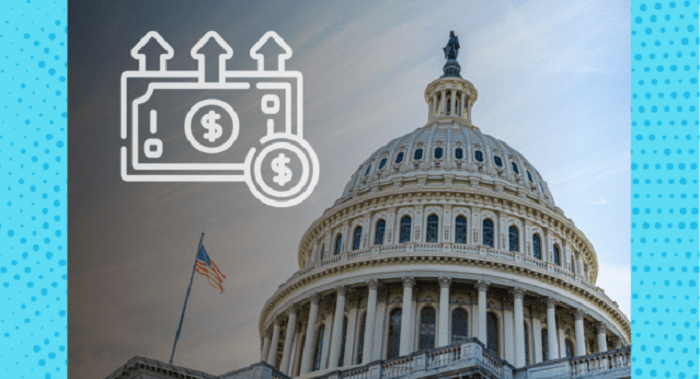The U.S. set a gambling record in 2022 with nearly $55b in revenue. Gambling revenue in N.J. alone topped $5b last year, matching the state’s all-time high in 2006. We can attribute much of that growth to the rise of sports betting apps, like FanDuel and DraftKings, that make placing bets as easy as liking someone’s post on Instagram. Gambling advertisers—think everything from casinos to fantasy sports leagues—have responded, increasing their investments by 40% YoY to nearly $866mm; the average monthly investment was $72mm, up from $46mm in 2021.
This week, MediaRadar reviewed advertising from the week of February 6, 2023, and compared it to ads that ran the week of January 30, 2023. On March 1, 2023, MediaRadar will share a monthly advertising index. Automotive advertisers increased over 140% WoW to $175mm+ invested. This occurs after three consecutive weeks of ad spend declining. Automotive models were 91% of the total spend and spiked over 125% WoW.
As millions watched the Kansas Chief’s secure a victory over the Philadelphia Eagles during 2023’s Super Bowl, consumers not only celebrated Rihanna’s baby bump, but also viewed brands ranging from auto, snacks and medical devices. Of course, every Super Bowl commercial comes with a hefty price tag. This year, the answer to the yearly question— “Super bowl ads cost how much?”—was $7mm for a 30-second TV spot. The steep price seems outlandish, but when considering the addressable audience, the rationale makes more sense, especially this year.
On February 12, 2023, more than 60k football fans will pack into State Farm Stadium in Glendale, Arizona, to experience Super Bowl LVII. For them, they’ll be up close and personal to football’s most exciting night, face-to-face with non-stop action. For the nearly 200mm people expected to tune in to the Big Game, there will be frequent stops in action—stops filled with ads from brands taking the opportunity to get their logo in front of a massive and engaged audience.
This week MediaRadar reviewed ad buys from the week of January 2, 2023, and compared them to ads that ran the week of December 26, 2022. While we highlighted four categories in this article, you can see the shifts in ad spend among all categories here. We look at Quarter-Over-Quarter (QoQ), Month-Over-Month (MoM) and Week-Over-Week (WoW). Here are some key weekly takeaways from advertising shifts that took place. Travel advertising increased over 15% WoW. This represents over a $75mm investment during the first week of 2023.
The Apparel and Food landscape is changing faster than ever. As we feel the impact of the recession, MediaRadar is monitoring which advertisers are shifting ad spend each week. This will give you the most updated view of the ad sales landscape. Here are some key weekly takeaways from advertising shifts that took place Apparel is a category that is experiencing growth possibly due to the holiday advertising push. The season brings gifts of clothes, shoes, belts and bags.
The media landscape is changing faster than ever. As we feel the impact of the recession, MediaRadar is monitoring which advertisers shifting ad spend each week. This will give you the most updated view of the ad sales landscape. Here is a full list of advertising changes by category. (Don’t worry, it’s ungated) Here are some key takeaways from advertising shifts that took place during the week of November 21, 2022. Media & Entertainment is a category that is experiencing growth at the end of 2022.
Peloton was already in trouble when we wrote about its ad strategy earlier this year. Fast forward a few months, and things are considerably worse. Here are a few headlines that have hit the presses since May: Peloton Lays Off 500 Employees in Fourth Round of Cuts This Year - Peloton, Seeking to Cut Costs, Will No Longer Make Its Own Bikes - Peloton, the Troubled Fitness Company, Loses Another Top Executive For the pandemic darling, these headlines seem unbelievable. Unfortunately for Peloton and its advertisers, they’re not.
“Obviously, Peacock sucks.” That’s what one executive said about NBCUniversal’s (NBCU) take on streaming. On the surface, the statement seems harsh—after all, Peacock is growing. In August 2022, Peacock reached 28mm monthly active accounts (MAAs), putting it on track to reach its goal of 30mm to 35mm MAAs by 2024. By 2026, Peacock could reach 84mm MAAs, representing a 250% increase in users from 2022. So, what gives, and what does the contradiction mean for the future of Peacock advertising? Ad strategies from July 1, 2021, through June 30, 2022, tell that story.
After two-plus years of a pandemic, a quick transition into a recession seems only fitting. Whether or not that’s true—the definition of a recession is widely disagreed upon—we can all agree that the economy is going through a rough patch. That means layoffs, revenue declines, go-to-market shifts, and less spending. When times get tough, and money is tight, ad budgets are typically one of the first line items to get the boot. But not all advertisers are watching their budgets disappear—some are spending more, despite the uncertain economy.
After more than two years of remote work, many companies are unlocking their office doors and asking employees to come back. In fact, about 50% of companies want workers back in the office 5 days a week. Much to their dismay, many of their employees don’t want to return—at least not every day. According to a Gallup study, more than 90% of the 70mm remote-capable employees say they don’t want to go back to the office full-time. Either way, with the return-to-office policies going into effect, people are putting on their fancy clothes, restarting their daily commutes and dropping their kids off at daycare.
Advertisers build their strategies based on current events. When online gaming grew in popularity during the pandemic, some advertisers allocated more of their budget to YouTube’s gaming channels. The rising cost of buying cars led advertisers for new and used dealerships to do the opposite. Advertisers for firearms and accessories companies are no different. Given the divisive nature of their products, however, these advertisers walk on a thinner sheet of ice. What does firearms advertising look like in 2022? Have the headlines and a push for gun reform impacted spending? We looked at our data to find out.
The global automotive market is projected to reach nearly $95t (yes, that’s a “t”) this year, making it one of the biggest industries in the world. A big industry calls for advertisers with even bigger budgets, right? Not so fast. (Get it?) The pandemic, coupled with an uncertain economy, has pushed car buying and related purchases to the back of many peoples’ minds. Sales of new vehicles in the US fell by about 15% in 2020, one of the biggest declines in decades.
On March 11, 2020, the World Health Organization (WHO) put everyone on notice when they announced that the COVID-19 outbreak was officially a pandemic. In the two-plus years since the pandemic, a lot has changed, including the spending habits of advertisers who found themselves trying to make sense of shifting consumer behaviors and shrinking ad budgets. As the pandemic waned, advertisers understandably increased spending as they looked to capitalize on the spending surge and recoup lost revenue.
Don’t let the recent job growth fool you—the US job market is a dumpster fire. In 2020, the unemployment rate reached 14.7%, the highest since The Great Depression. To add fuel to the fire, many people who received pink slips remained unemployed for more than a year. While the pandemic forced many cash-strapped companies to cut ties with people out of necessity, a lot of people left on their own accord. Enter the Great Resignation, the name used to describe the mass exodus of people quitting their jobs due to dissatisfaction related to pay, growth opportunities, benefits and more.
What do the COVID-19 pandemic, a looming recession, rising interest rates and global conflicts have in common? They all impact nearly every aspect of life, including how brands spend their ad dollars. While the lasting impact of these events remains to be seen, we are starting to see how advertisers are responding to the shifting sands. Hint: Most of them are spending less. Still, there are opportunities to convince them to open their wallets. Recently, MediaRadar looked at a sampling of advertising on over 215 digital content companies like BBC News, ABC, and USA Today.
It’s been more than a decade since “Satoshi Nakamoto,” a suspected pseudonymous person or persons, introduced Bitcoin—and cryptocurrency—to the world. In that time, its value has skyrocketed from zero to $60k, turning thousands of ordinary people into millionaires, a lucky few into billionaires and a long list of others into oh-so-comfortable. In 2021, the cryptocurrency market was valued at more than $3t, which came at a time when many coins reached all-time highs and crypto started to gain widespread appeal, especially among corporations and governments.
With the midterm elections fast approaching and the balance of power in Washington teetering on the edge, Democrats and Republicans are doing everything in their power to get in voters’ good graces. One of the ways they’re doing that is by investing in ads. We looked at our data through April of this year to understand how both parties are spending their ad dollars leading up to one of the most pivotal elections in the history of the United States.
A couple of years—and variants—later, the world appears to be going back to normal and people are understandably excited about the ability to travel. On June 1, 2022, 1.9mm people went through TSA, which is in line with pre-pandemic numbers. Travelers aren’t the only ones excited, though. Advertisers in the travel industry, including U.S Tourism, Rental Car, Lodging and Airlines, are looking forward to clawing back some of the $2 trillion in lost revenue last year.
It’s not everyday that advertisers aren’t chomping at the bit to hand YouTube their ad dollars—but that’s precisely what’s happening as Home Goods advertisers opt for retail media in lieu of the video giant. In Q1 2022, Home Goods advertisers spent $187mm on ads on retail sites like Amazon, Walmart, Target, Kroger and The Home Depot. Meanwhile, they spent just $77mm on YouTube ads.What does their penchant for retail media tell us about their overall digital advertising strategies? Do these advertisers see a future with YouTube—and can we predict anything about their strategies moving forward?


























